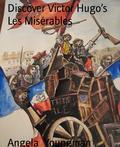Written over a hundred years ago to draw attention to the problems of justice and poverty in France; Les Misérables has become a global phenomenon. Its message is seen as applicable to people throughout the world facing oppression and unfair justice. Yet it is the film and the musical that has achieved this global status - not the book itself. Millions of people have been left in tears by the story of Cosette, Fantine, Valjean and Javert as portrayed in the musical and film. When Colm Wilkinson (the first Jean Valjean) first sang Bring Him Home, there was an awed silence before someone commented that God had been booked to sing the song. Impressario Cameron Mackintosh said that the production was 'A Dream beyond all Dreams' and that 'at the very core of the story is the survival of the human spirit and the music that drives that story. It's probably the most successful adaptation of any book in the history of music.' Outside France, far fewer people have read the book as compared to watching the musical adaptation. The amount of philosophy, social thought and politics pervading the book can be off putting - as can the sheer size of the novel. It is recognised as one of the longest novels ever written as it contains 365 chapters spanning more than 1,500 pages. Despite this, Les Miserables has had a significant literary impact, influencing writers like Charles Dickens and Fyodor Dostoevsky. It is this book that is the subject of countless Son et Lumiere productions every year; attracts millions of people into the theatre or cinema; and many more to visit the places and locations linked to the author and the film. None of the sites involved are far apart - it is an area confined to France, the Channel Islands, Belgium, Luxembourg and England. The film itself was shot almost entirely within southern England and involves some of the most stunning locations imaginable such as the Royal Hospital Greenwich, Chatham Historic Dockyard and Bath's spectacular weir.
-
- Categories
- Other
- Australia
- China
- New Zealand
- United States
- United Kingdom
- France
- Spain
- Italy
- Turkey
- Germany
- Malaysia
- Mexico
- Austria
- Russia
- Ukraine
- Thailand
- Saudi Arabia
- Greece
- Canada
- Poland
- Netherlands
- Singapore
- Hong Kong
- Taiwan
- South Korea
- Japan
- Brazil
- Argentina
- Indonesia
- Vietnam
- India
- Morocco
- South Africa
- Tunisia
- Zimbabwe
- Algeria
- Kenya
- Egypt
- United Arab Emirates
- Syria
- Jordan
- Iran
- Israel
- Qatar
- Dominican Republic
- Chile
- Puerto Rico
- Peru
- Uruguay
- Costa Rica
- Mauritius
- Sweden
- Nepal
- New
- Popular
- Gifts
- Videos
- Help / Contact Us
- Terms & Privacy
- What is TripTerest


